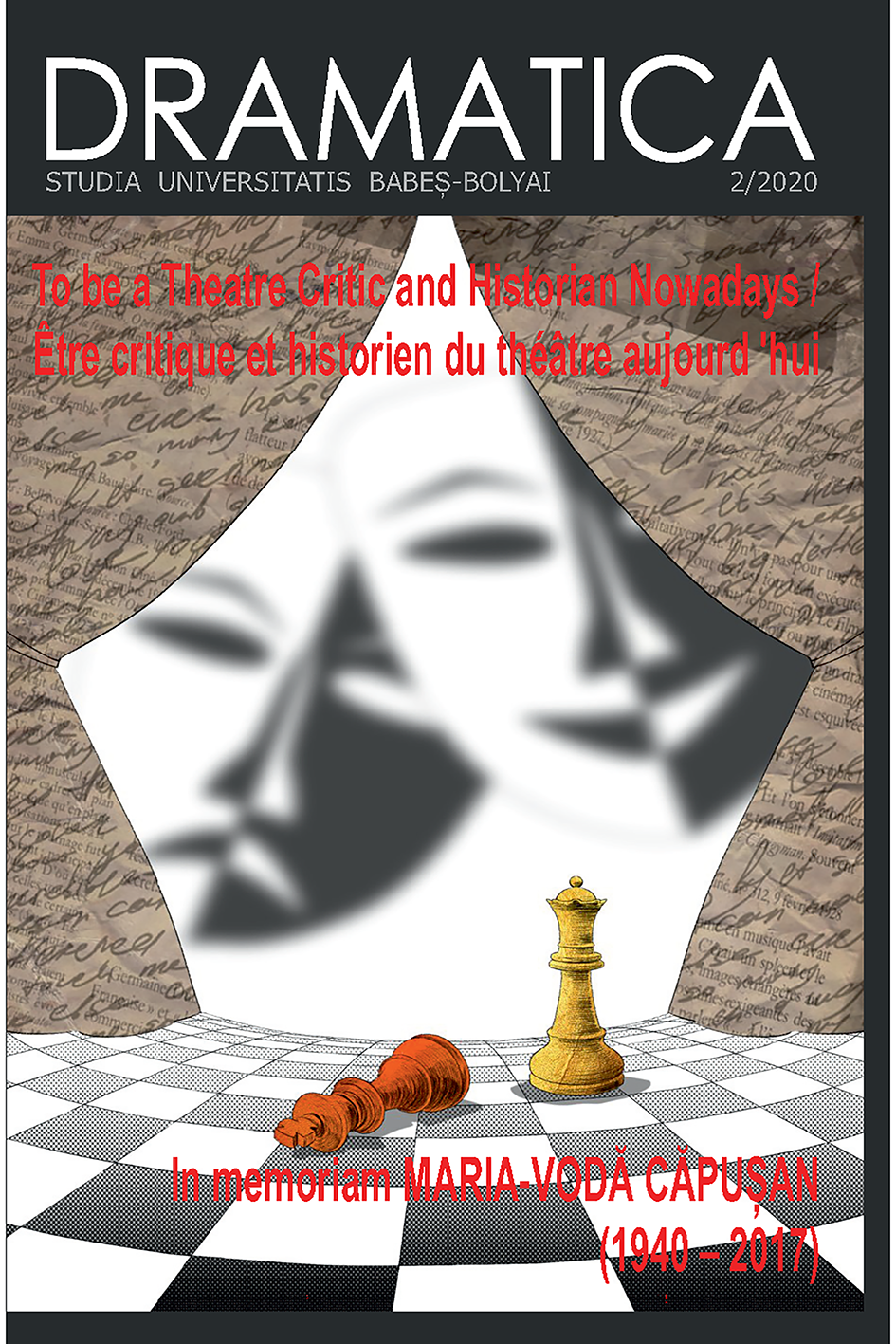One Conscience or more: Is the Actor more than one at a time?
DOI:
https://doi.org/10.24193/subbdrama.2020.2.12Keywords:
consciousness, actor, character, emotions, images, brain.Abstract
This paper approaches an important theme in the study of actors work: the multiplication of the consciousness, from the perspective of the actor’s training correlated to psychology and neuroscience. We will refer to some of the best known works used in the training of the actor or which have as object of study the art of the actor, namely K. Stanislavsky - An Actor Prepares; Michael Chekhov - To the Actor: On the technique of acting, Lee Strasberg - Strasberg at the Actors Studio, Jerzy Grotowski - Towards a Poor Theatre, Bertolt Brecht - Brecht on Theatre, Denis Diderot - Paradox of the Actor. Conversations on The Natural Son on one hand, and Antonio Damasio’s studies on the self, on the other hand, noting that theories about the cognitive functions of the human brain provide a valuable perspective on the art of the actor, especially by how it applies to the conscious and subconscious of the actor on stage. What happens to the actor while performing? How does the actor process different stimuli to build a character, and then an entire artistic act? What are the roles of the mind and body in the creative process? These are just a few questions that I will try to find answers to, while examining the actor’s multiplication of consciousness.
References
Book, Stephan. Book on Acting: Improvisation Technique for the Professional Actor in Film, Theatre and Television. Los Angeles: Silman-James Press, 2002.
Brecht, Bertolt, Brecht on Theatre: The Development of an Aesthetic. New York: Farrar, Straus & Giroux, 1964.
Cosmovici, Andrei. Psihologie generală [General Psychology]. Iași: Editura Polirom, 1996.
Chekhov, Michael. On the technique acting. New York: HarperCollins Publishers, 1985.
Damasio, Antonio. Self Comes to Mind: Constructing the Conscious Brain. New York: Pantheon, 2010.
Damasio, Antonio. The Feeling of What Happens: Body and Emotion in the Making of Consciousness. New York: Harcourt Brace, 1999.
Diderot, Denis. The paradox of the actor: Reflexions sur le paradoxe. Createspace Independent Publishing Platform, translated by Walter Herries Pollock, Introduction by Henry Irving, 2015.
Grotowski, Jerzy. Towards a Poor Theatre. London: Methuen, 1991.
Konijn, Elly A. Acting emotions. Shaping emotions on stage. Amsterdam University Press, 2000.
Richards, Thomas. At Work with Grotowski on Physical Actions. London: Routledge, 1995.
Stanislavsky, Konstantin Sergeyevich. An Actor Prepares. New York: Routledge, 2003.
Strasberg, Lee. Strassberg at The Actors Studio. Tape-recorded sessions, edited by Robert H. Hethmon. New York: The Viking Press, 1968.
Zinder, David. Body Voice Imagination: ImageWork Training and the Chekhov Technique, Taylor and Francis, Kindle Edition.
Zlate, Mielu. Introducere în psihologie [Introduction in Psychology], ed. a 3-a. Iași: Polirom, 2000.
Downloads
Published
How to Cite
Issue
Section
License
Copyright (c) 2020 Studia Universitatis Babeș-Bolyai Dramatica

This work is licensed under a Creative Commons Attribution-NonCommercial-NoDerivatives 4.0 International License.


